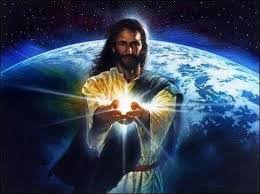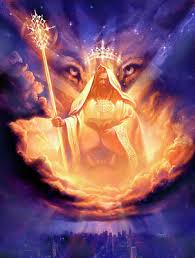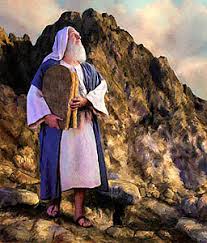Fs – Moses Went 31: 1-8
Moses Went
31: 1-8
Moses went DIG: What events are about to take place? Who will cross the Jordan before Isra’el? What does that mean in context? Why would the people be afraid here? Where would Isra’el get the strength and courage to go on without Moshe? How will Joshua follow in his steps?
REFLECT: Would you be afraid or discouraged in a situation like this? For what do you need strength and courage in your life today? Where will you find it? Who has been your mentor? What have you learned? Enough to succeed him or her? Explain.
Parashah 52: vaYelekh (He Went) 31:1-30
(In regular years read with Parashah 51, in leap years read separately)
(To see link click Af – Parashah)
The Key People: Moshe, speaking to all Isra’el and Joshua.
The Scene: In the wilderness east of the Promised Land, ready to cross over the Jordan.
The Main Events: include the 120-year-old Moses going out to continue his words to Isra’el to be strong and of good courage; Joshua’s role as Isra’el’s new leader; Moshe writing down Torah to be read every seven years so all could hear and learn to obey; Moses and Joshua at the Tent of Meeting with YHVH; the LORD telling about Moshe’s death and the people’s rebellion; a new song for Moses to write down and teach as a witness against the people; command for the Levites to carry the Torah in the ark; and people gathering to hear the Ha’azinu song.655
The approaching death of Moshe, which had already been anticipated, now becomes the central focus for the remaining chapters of the book.
The day before Moses died.
Chapter 31 begins a brief account of the concluding stages of Moshe’s life. A significant feature of these closing chapters is that they too exhibit some traces of the treaty pattern (to see link click Ah – Treaty of the Great King). Accordingly, they are instructed to keep a copy of the covenant in the ark (31:24-29), a reference to the appointment of Joshua as the visible head of the covenant community (31:1-8 and 14-23), a promise of the blessings to be enjoyed by the tribes (Chapter 33), and a fascinating chapter that reminds us of the standard indictment document issued to an erring vassal (Chapter 32). The book concludes with a touching account of the death of Moses (Chapter 34).656
As Moses approached death, he gave a series of instructions to the people (31:1-6), to Joshua (31:7-8), and to the priests (31:9-13), each concerned in some way with the maintenance of the covenant. Here, we see the instructions to the people and Joshua.
According to Jewish tradition, it was now the seventh day of Adar, and the Heavenly Voice called out to Moshe, “This is your last day on earth.” Moses then went to speak with the children of Isra’el and to bid them farewell.
Instructions to the people (31:1-6): Then Moses went and spoke these words to all Isra’el. He said to them, “I am 120 years old today. I am no longer able to go out and come in.” Although he still had all his strength (34:7), it was time for him to depart and make room for another to lead the nation. ADONAI has said to me, ‘You are not to cross over this Jordan’ (31:1-2). His advanced age may have limited his effectiveness to lead the nation into war, which was just around the corner for them. More significantly, however, was YHVH’s refusal to allow Moshe to enter the Promised Land (3:23-29).
The transfer of leadership is a critical time for any country. The Bible actually focuses on the issue quite frequently: Samuel to Sha’ul, David to Solomon, Elijah to Elisha, Yeshua to His apostles, and even Paul to Timothy. Moshe’s capacity for leadership[ may have diminished, but YHVH was still their Commander-in-Chief (1:30, 3:18-21, 7:1-2 and 17-24, 9:3-4, 20:1-4), who would lead their army, destroy the Canaanites, and deliver the Land to His chosen people. That reality did not change when Moses passed from the scene.
ADONAI your God – He will cross over before you. The people could be free from anxiety. God would neither desert them after the death of Moses, nor leave them without a human leader. He will destroy these nations from before you, and you will dispossess them. Joshua will cross over before you, just as ADONAI has promised. What God did in their past, He would do in their near future. ADONAI will do to them just as He did to Sihon and Og, the kings of the Amorites, and to their land, when He destroyed them. ADONAI will give them over to you, and you are to do to them according to all the mitzvot that I commanded you (3-5).657 With full confidence in the presence of God in their midst, the army of the LORD could not fail to be victorious in the conquest, and soon the Land which had been promised so long ago would become their possession in reality.

Since the accomplishment of this daunting task rested on YHVH alone, Isra’el had no need to fear. Chazak! Be courageous! Do not be afraid or tremble before them. For ADONAI your God – He is the One who goes with you. He will not fail you or abandon you (31:6a). These words were not merely for a psychological boost. They were based on two great truths. First, the Israelites were those whose very existence proved the faithfulness of God (31:7b). ADONAI had invested His Word and His Name in the future of His people and, therefore, the ultimate responsibility for them was, and is, YHVH’s – a fact which Moshe used so effectively in his intercession (see Cl – Cut Two Tablets of Stone). Secondly, whoever led the people could count on the unfailing presence of God. What was true for the people, “I will not fail you or abandon you” (31:6b), would be no less true for their leader, “I will never leave you, I will never forsake you” (31:8a).658
Dear Heavenly Father, What a comfort You are-stronger than all the armies of the world (Revelation 19:11-21), and yet also the loving Father (John 1:12) of all who have chosen to love and to follow You (Romans 10:9-10)! Praise You for always being with Your children so we can always run into Your arms for safety: For God Himself has said, “I will never leave you or forsake you,” so that with confidence we say, “The Lord is my helper; I will not fear. What will man do to me” (Hebrews 13:5b-6)? We also want to bless and love You, “Yes, Lord,” he said to Him, “You know that I love You” (John21:15b, 16b). In Yeshua’s holy name and power of His resurrection Amen
Instructions to Joshua (31:7-8): Just as David had been anointed three times to lead the nation (First Samuel 16:1-3, Second Samuel 2:1-7 and 5:1-5), and his son Solomon was anointed three times to lead the Israelites after his father’s death (First Kings 1:28-53; First Chronicles 17:1-15 and 29:21-25), Joshua was also anointed three times. He had already been set apart by Moses before Eleazar the high priest and the congregation to assume leadership after his death (Numbers 27:18-23). Then here, Moses summoned Joshua the people and said to him in the sight of all Isra’el (31:7a). Finally, YHVH commissioned Joshua privately in the Tent of Meeting (31:14).
The concept of the Holy War (see Ag – The Problem of Holy War in the TaNaKh) lies very close to the surface in these words to Joshua. “Be strong! Be courageous! For you are to go with this people into the land ADONAI has sworn to their fathers to give them, and you are to enable them to inherit it. ADONAI – He is the One who goes before you. He will be with you. He will not fail you or abandon you” (see the commentary on Hebrews De – Believer’s Behavior in Relation to Ourselves). Hence there was no need to fear or be discouraged (31:7b-8).








 El TaNaJ termina con una maldición. Malaquías profetizó: He aquí, Yo os envío al profeta Elías antes que venga el día de YHVH, grande y terrible. Él hará volver el corazón de los padres a los hijos, y el corazón de los hijos a los padres, no sea que Yo venga y tenga que consagrar la tierra al exterminio (Malaquías 4:5-6). Sin embargo, el Nuevo Pacto termina con una bendición de gracia sobre los creyentes. La gracia del Señor Jesús sea con todos (22:21). La gracia se extiende a todos, pero si alguien rechaza la oferta que se ofrece, él o ella deberá soportar el juicio pronunciado en este libro. La gracia todavía se ofrece porque es el método del Señor para salvar a los pecadores. John Newton lo dijo mejor:
El TaNaJ termina con una maldición. Malaquías profetizó: He aquí, Yo os envío al profeta Elías antes que venga el día de YHVH, grande y terrible. Él hará volver el corazón de los padres a los hijos, y el corazón de los hijos a los padres, no sea que Yo venga y tenga que consagrar la tierra al exterminio (Malaquías 4:5-6). Sin embargo, el Nuevo Pacto termina con una bendición de gracia sobre los creyentes. La gracia del Señor Jesús sea con todos (22:21). La gracia se extiende a todos, pero si alguien rechaza la oferta que se ofrece, él o ella deberá soportar el juicio pronunciado en este libro. La gracia todavía se ofrece porque es el método del Señor para salvar a los pecadores. John Newton lo dijo mejor: Juan advierte: Yo testifico a todo el que oye las palabras de la profecía de este rollo: Si alguno añade a ellas, Dios le añadirá las plagas escritas en este rollo (22:18), en última instancia, el lago de fuego. Esto reforzó lo que Moisés había dicho en la Torá: para que guardéis los mandamientos (mitzvot) de YHVH vuestro Dios que yo os ordeno (Deuteronomio 4:2a).
Juan advierte: Yo testifico a todo el que oye las palabras de la profecía de este rollo: Si alguno añade a ellas, Dios le añadirá las plagas escritas en este rollo (22:18), en última instancia, el lago de fuego. Esto reforzó lo que Moisés había dicho en la Torá: para que guardéis los mandamientos (mitzvot) de YHVH vuestro Dios que yo os ordeno (Deuteronomio 4:2a). El que escucha es descripto como el que tiene sed (Salmo 107:9; Juan 4:14 y 6:35). Y el que tenga sed puede venir porque
El que escucha es descripto como el que tiene sed (Salmo 107:9; Juan 4:14 y 6:35). Y el que tenga sed puede venir porque  De hecho, una
De hecho, una  Y me dijo: Estas palabras son fieles y verdaderas. El Señor, el Dios de los espíritus de los profetas, ha enviado a su ángel para mostrar a sus siervos lo que debe suceder en breve (22:6). El ángel le asegura a Juan que lo que ha visto y oído en todas las revelaciones del futuro son fieles y verdaderas. No solo estaba soñando.517 Todo lo que vio y oyó era verdad. Podemos estar seguros de que Aquel que se llama Fiel y Verdadero (19:11), hablará palabras que son fieles y verdaderas (21:5).
Y me dijo: Estas palabras son fieles y verdaderas. El Señor, el Dios de los espíritus de los profetas, ha enviado a su ángel para mostrar a sus siervos lo que debe suceder en breve (22:6). El ángel le asegura a Juan que lo que ha visto y oído en todas las revelaciones del futuro son fieles y verdaderas. No solo estaba soñando.517 Todo lo que vio y oyó era verdad. Podemos estar seguros de que Aquel que se llama Fiel y Verdadero (19:11), hablará palabras que son fieles y verdaderas (21:5). Después de haber llevado al lector a través del sorprendente barrido de la historia hasta el futuro Estado Eterno, todo lo que le queda a Juan para registrar es este final divino. En este punto del libro se habrán cumplido todos los gloriosos propósitos que Dios ordenó antes de la fundación del mundo. Los juicios devastadores de la Gran Tribulación se habrán llevado a cabo y su memoria olvidada desde hace mucho tiempo. El Señor Jesucristo habrá regresado en una gloria resplandeciente, ejecutado a Sus enemigos, y reinado sobre la tierra durante mil años. Todos los rebeldes, tanto ángeles como seres humanos, habrán sido condenados a su castigo eterno en el lago de fuego. El universo actual habrá sido “des-creado”, y el eterno cielo nuevo y la nueva tierra creados, en los cuales el REY de reyes y el SEÑOR de señores reinará con Su Padre. Los creyentes de todas las edades, tanto judíos como gentiles, vivirán a la luz de la gloria Shekinah. La santidad absoluta e inmutable caracterizará a todos los que viven en la ciudad capital de la Nueva Jerusalén. Alabarán, adorarán y servirán constantemente a la Trinidad durante toda la eternidad en un ambiente de perfecta paz, alegría y satisfacción.516
Después de haber llevado al lector a través del sorprendente barrido de la historia hasta el futuro Estado Eterno, todo lo que le queda a Juan para registrar es este final divino. En este punto del libro se habrán cumplido todos los gloriosos propósitos que Dios ordenó antes de la fundación del mundo. Los juicios devastadores de la Gran Tribulación se habrán llevado a cabo y su memoria olvidada desde hace mucho tiempo. El Señor Jesucristo habrá regresado en una gloria resplandeciente, ejecutado a Sus enemigos, y reinado sobre la tierra durante mil años. Todos los rebeldes, tanto ángeles como seres humanos, habrán sido condenados a su castigo eterno en el lago de fuego. El universo actual habrá sido “des-creado”, y el eterno cielo nuevo y la nueva tierra creados, en los cuales el REY de reyes y el SEÑOR de señores reinará con Su Padre. Los creyentes de todas las edades, tanto judíos como gentiles, vivirán a la luz de la gloria Shekinah. La santidad absoluta e inmutable caracterizará a todos los que viven en la ciudad capital de la Nueva Jerusalén. Alabarán, adorarán y servirán constantemente a la Trinidad durante toda la eternidad en un ambiente de perfecta paz, alegría y satisfacción.516 Una vez más, Cristo se describe como
Una vez más, Cristo se describe como 




